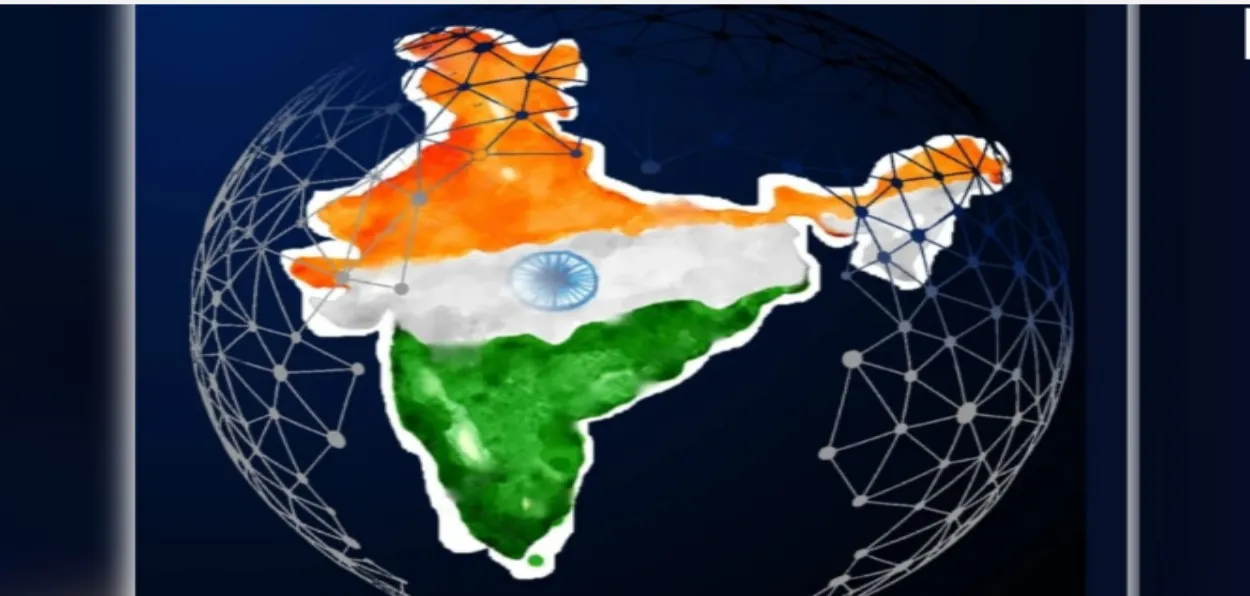
 Ajay Lele
Ajay Lele
Everyone knows that data is going to play an important role in the 21st century. The term 'data' refers to financial, commercial, technological, and defense information gathered by the U.S. government. This raises several issues in areas such as cyber security and intellectual property rights. That is why India has always insisted on using 'Artificial Intelligence' very responsibly and for the benefit of all.
The recently held 'G-20' summit under the chairmanship of India in the capital Delhi has been positive in many ways. One of these is the Framework for Digital Public Infrastructure for the G-20 countries. (Agreed on DPI) In the New Delhi Declaration, the leaders of the G-20 countries have expressed their support for framing the DPI system for development as an alternative to the current system.
These leaders have recognized the ease and benefits that come through 'DPI' while providing facilities at the social level. Similarly, world leaders have also agreed to enhance cooperation and work together on the regulation of Artificial Intelligence (AI) at the international level.
Before the New Delhi Declaration was announced, many doubts were raised about the consensus on the matter. After attending last year's G-20 summit in Bali, many were skeptical about reaching a consensus on this declaration.
In the wake of the Russia-Ukraine war, the G-20 group includes NATO members and China, which is an ally of Russia and Russia, as well as the United States. But despite this, India's 'G-20' Sherpa and his team of colleagues managed to gain consensus among all countries on the Declaration.
It appears that Sherpa and his team of colleagues focused more on the positive aspects of the Declaration to get other countries to focus on it as well. Similarly, a consensus was reached by arguing for issues that would bring about positive change in the present and future at the global level. One of those points is the DPI.
This is a huge success for India. India, being a country of the 'Global South', is now giving lessons to the developed nations of the world on how society can benefit on a large scale through digitization. The member countries of the 'G-20' have also taken India's concept of 'DPI' seriously.
The biggest reason for this is that India has been known as a leading country in software development for the past few decades. Most of the IT companies in the world today are headed by citizens of Indian origin. Similarly, Indian nationals working in the information technology sector play an important role in developed countries, from the banking sector to even the education and defense sectors.
More importantly, in the recent past, India has shown success in three fundamental aspects of 'DPI'. One is real-time fast payment i.e. 'UPI', the second is digital identity, and so on. i.e., Aadhaar, and a third, the creation of a platform to share private information.
A situation in which no compromise has been made in terms of safety, or whether there are errors or inconsistencies between the two systems. That is why India is adopting the concept of the Global Digital Public Infrastructure Repository (GDPIR) to facilitate the creation of a global digital infrastructure. i.e. a repository of information created in virtual form for a global digital public infrastructure.
World leaders are also aware that India has the necessary experience. Naturally, India has a lot to offer the G-20 countries.
India experienced demonetisation in 2016. There may be differences of opinion about the success of demonetization or the policy behind it, but what this demonetization has most highlighted or brought to light is digital financial transactions. India has successfully provided digital infrastructure for some time now.
These include The Unified Payment Interface (UPI), Jan Dhan Bank Account, Aadhaar, etc. Similarly, the Open Network for Digital Commerce (ONDC) has revolutionized India's digital commerce sector. Through an app like CoWIN, India has successfully demonstrated vaccination against Corona.
The world is still in awe of this achievement. Of course, success is also a problem for ordinary Indians. They are quick adopters of digital media and have played an important role in creating successful media by imbibing these media elements into their lives.
The field of artificial intelligence is broad
All of the countries have also supported India's plan regarding 'GDPIR' in the New Delhi Declaration. Global leaders have also been interested in the concept of a 'One Future' group proposed by India's National Economic Council. Under this concept, technological cooperation and adequate funding will be made available for the implementation of the 'DPI' system in low and middle-income countries.
India proposes that through a 'DPI' system, information can be exchanged within the country while maintaining credibility and within the framework of international law. All countries are aware that 'data' will play an important role in developing the world's most advanced economies.
With the help of technology, the present digital gap can be bridged; similarly, India believes that growth will be boosted and sustainable and inclusive development will be achieved.
During the terms of India's presidency, the Finance Ministers of the 'G-20' countries agreed on how to effectively use 'DPI' to achieve the Sustainable Development Goals and to implement the 'DPP' in the next five years. India has also been included as an expert partner in the working group working on 'DPI' in the United Nations Development Project in association with the World Bank.
India will have to put in special efforts to make this concept a reality in the future. The whole concept of 'DPI' revolves around 'data', which is a very important aspect of the system. Getting member countries to agree to share 'data' is one part of an event like the 'G-20 summit, but initiating the process of sharing 'data' from these countries is an important part.
It is well known that data is going to play a very important role in the 21st century. Here, ' data' includes financial, commercial, technological, and defense information.
This raises several issues in areas such as cyber security and intellectual property rights. That is why India has always insisted on using 'Artificial Intelligence' very responsibly and for the benefit of all.
The New Delhi Declaration also mentions the development of artificial intelligence and the growth and expansion of the global digital economy through it. The field of artificial intelligence is very broad and there is room for many improvements and the field is still strengthening its foundation. Of course, it is not considered appropriate to completely rely on artificial intelligence.
ALSO READ: Is India the biggest or the oldest democracy?
Fortunately in India, however, there is an adequate pool of technically skilled manpower working in digital public infrastructure and the ability to do so is not limited to the private sector. What is needed now is to work with the G-20 countries on the 'DPI' sector and make this concept a success. India's efforts to create a reliable ecosystem in the digital sector will be important in putting India's stamp on the global stage.
The author is Consultant with the Manohar Parrikar IDSA, New Dekhi, and has published several works on digital public infrastructure
